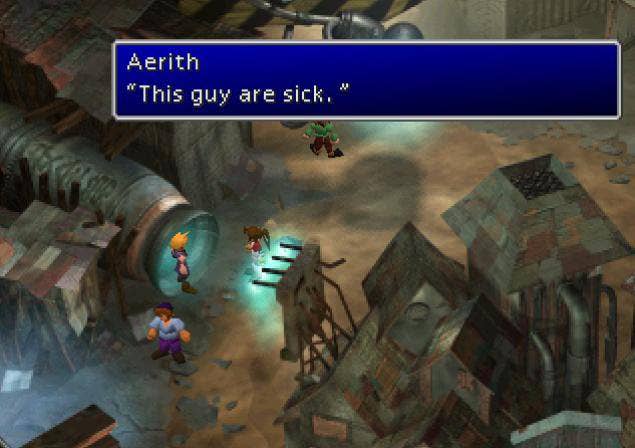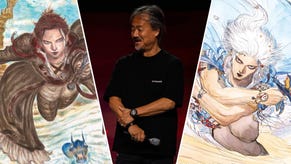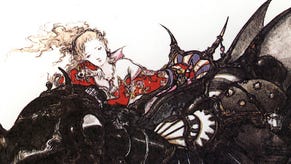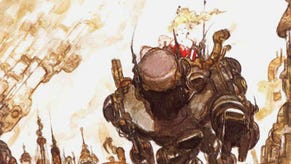Final Fantasy's Producer Asks: What Makes a Good (or Bad) English Localization?
Yoshinori Kitase wants your feedback on how American gamers prefer their English-language RPGs.
This article first appeared on USgamer, a partner publication of VG247. Some content, such as this article, has been migrated to VG247 for posterity after USgamer's closure - but it has not been edited or further vetted by the VG247 team.
Over the weekend, I spoke to Final Fantasy producer Yoshinori Kitase and art director Yusuke Naora following the opening of the Final Fantasy X & X-2 art exhibition at Gallery Nucleus in Alhambra, California. Since Kitase isn't working on any currently announced projects and Naora can't talk much about his work on Final Fantasy XV, it ended up being less an interview than an informal discussion.
One of the topics we discussed in the greatest depth was the matter of localization – something to which Kitase admits being something of an outsider. Understandably, while he's confident in the Japanese-language releases of his games, he feels a bit out of depth when it comes to foreign editions in what, for him, are non-native languages. Localization involves much more than simply translating dialogue, and the rules that apply to Japanese releases don't necessarily work in other countries. For instance, Kitase pointed to the trend of celebrity voices in Western games, such as Kiefer Sutherland in Metal Gear Solid: Ground Zeroes and Ellen Page in Beyond: Two Souls, as something would never fly overseas.

"In Japan, fans actually complain if we use movie stars rather than their favorite voice actors," he said. Japan has a wholly unique fan culture that's grown up around voice actors, a phenomenon that doesn't exist in the West. Americans generally only know the names of a handful of dedicated voice actors, and generally when we talk about them at all it's to joke about the omnipresence of guys like Nolan North and Troy Baker.
And spoken dialogue is only a single facet of localization's challenges. Localized text, culturally sensitive concepts, and even something as mundane as the developer's choice of fonts can radically change a player's perception of a game, and often that perception falls short of the creators' intentions. (This holds true for translations into Japanese, too.) In light of criticism directed at the localizations of recent Final Fantasy games (ranging from the protagonist's affectless performance in Lightning Return's to the cheap-looking font in the iOS version of Final Fantasy VI), Kitase wants to know what American games expect from a localized Japanese game – and, more to the point, what gamers outside Japan feel makes a localization succeed or fail. He asked my opinion, but I'd like to put the question to you.

And this wasn't simply a hypothetical musing on Kitase's part; the Final Fantasy team is actually taking notes. Kitase says he paid close attention to the responses USgamer's community (that's you) posted in the wake of our interview at last year's E3, regarding the prospect of demand for a turn-based Final Fantasy title on current-gen hardware. He's indicated that he'll also read and possibly even respond directly to comments here. In other words, this is your opportunity to share your thoughts directly with the franchise's producer, without having your opinions filtered through a poll or a community manager.
So, the question stands: What makes or breaks an RPG localization? Where have Final Fantasy localizations succeeded or fallen short in recent years? How could they be better? Share your thoughts here and help change the world for the better.








